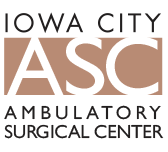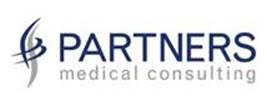ASCs: A Solution For Successful Outcomes
icasc advantage blog
ASCs: A Solution For Successful Outcomes
Posted by iowacityasc on Jul 23, 2019 4:37:49 PM

There are many challenges to face within the world of healthcare, especially if you’re a care provider. Patients are the number one concern, since their well-being is the top priority of healthcare. Placing priority on patients requires astute attention to detail, constant research into new modes of care, and utilizing tools and environments that will be conducive to successful outcomes.
ASCs and Successful Outcomes
While large healthcare organizations such as hospitals have been the traditional setting for practicing medicine, there are alternatives that can help facilitate even more successful outcomes for care providers.
Hospitals are necessary facilities for intensive surgeries that require the resources that are only available through their network and ranks of staff; however, for patients who do not require hospitalization or the vast extent of a hospital’s full resources, ambulatory surgical centers (ASCs) offer an alternative setting that still provides successful outcomes for patients and their care providers.
As a care provider, you have a lot of options when it comes to providing successful outcomes for your patients. In the midst of your various options and modes of care, though, ASCs stand out amongst the rest, especially if your patients are eligible for outpatient care.
There are several benefits of utilizing an ASC setting. Patients and care providers alike benefit from ASCs, but in this blog we’ll highlight just one of the most important benefits for care providers.
Successful Outcomes through Lower Infection Rates
As mentioned previously, successful outcomes are at the top of the priority list for care providers. Successful outcomes are dependent on several factors, and one of the most critical is related to rates of infection within an operating facility.
While hospitals in the United States have infection rates of just under 1%, ASCs tout even more impressive numbers. ASCs have infection rates of about 1/10thof a percent of hospital infection rates.
These extremely low rates of infection offer providers even safer environments to perform outpatient surgical procedures, leading to more successful outcomes for physicians and patients alike.
While the infection rates at hospitals are low, why wouldn’t you take advantage of an operating facility with even lower rates of infection? Hospitals serve an important purpose: taking care of patients who require intensive care.
However, for patients who do not require intensive procedures, receiving their care in a setting that greatly reduces their chances of contracting an infection is an obvious advantage.
A Solution for the Future of Healthcare
As healthcare continues to evolve, more and more care providers are utilizing ASCs to provide care for their outpatient eligible patients. When providers are able to use ASCs and hospitals for their intended purposes—utilizing their inherent strengths as facilities—they are better able to serve their patients and provide successful outcomes.
With the continually evolving challenges of healthcare, ASCs offer a solution for the constant need for successful outcomes in medicine.
SUMMARY
There are many challenges and concerns in the world of healthcare, but ASCs offer a solution to finding successful outcomes when practicing medicine. A critical part of providing successful outcomes is reducing the chances of patients contracting infections. While hospitals in the United States have infection rates of just under 1%, ASCs tout even more impressive numbers. ASCs have infection rates of about 1/10thof a percent of hospital infection rates. These extremely low rates of infection offer providers even safer environments to perform outpatient surgical procedures, leading to more successful outcomes for physicians and patients alike.
Topics: Why Choose an ASC
Comments or Questions? Click Here!




